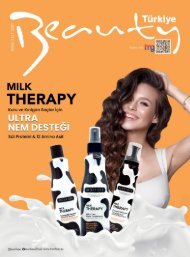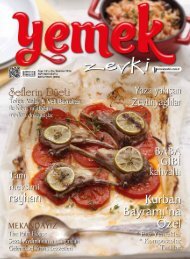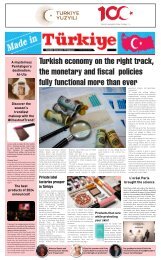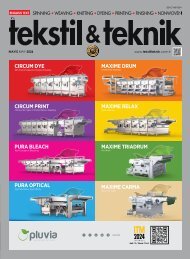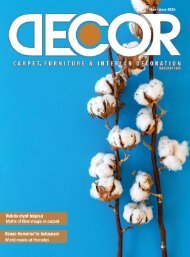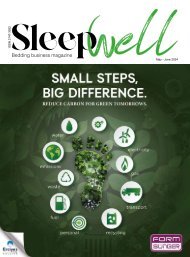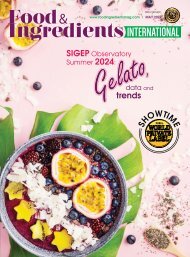Food & Ingredients International April 2024
- No tags were found...
You also want an ePaper? Increase the reach of your titles
YUMPU automatically turns print PDFs into web optimized ePapers that Google loves.
Tate & Lyle Partners with Cryptobiotix:<br />
New ex-vivo study on low and<br />
no calorie sweeteners finds<br />
positive impact or no impact<br />
on human gut microbiota<br />
Tate & Lyle and<br />
Cryptobiotix’s breakthrough<br />
ex-vivo* study shows that<br />
sucralose does not impact<br />
the gut microbiota, while<br />
other low and no calorie<br />
sweeteners have potentially<br />
beneficial health effects.<br />
journal the <strong>International</strong> Journal of <strong>Food</strong><br />
Sciences and Nutrition, found that some of the<br />
studied low calorie and no calorie sweeteners<br />
had no impact on the gut microbiota, while<br />
others had potential beneficial health effects.<br />
Using Cryptobiotix’s cutting-edge SIFR ®<br />
(“cipher”) technology to recreate the gut<br />
A new, first-of-its-kind study has identified<br />
unique and potentially beneficial interactions<br />
between certain low and no calorie<br />
sweeteners, including stevia, and the human<br />
gut microbiota. Tate & Lyle PLC (Tate &<br />
Lyle), a world leader in ingredient solutions<br />
for healthier food and drink, partnered<br />
with Cryptobiotix, pioneers in preclinical<br />
gastrointestinal research, on the study.<br />
Dr. Davide Risso, molecular biology specialist<br />
and Tate & Lyle’s Head of Nutrition Research,<br />
led the project to explore the potential impact<br />
of certain low and no calorie sweeteners<br />
on the gut environment in both healthy<br />
individuals and those with type 2 diabetes.<br />
The research involved taking samples from<br />
co-living adults consuming a similar diet – to<br />
lower the potential variation introduced by<br />
differences in long-term diet, a major driver of<br />
microbiota composition. The doses of low and<br />
no calorie sweeteners used were based on<br />
actual intakes, regulations and amounts that<br />
are generally included in foods and beverages<br />
during different timepoints.<br />
Results from the pre-clinical study, published<br />
in the leading peer reviewed, open-access<br />
18 FOOD & INGREDIENTS INTERNATIONAL APRIL <strong>2024</strong>



